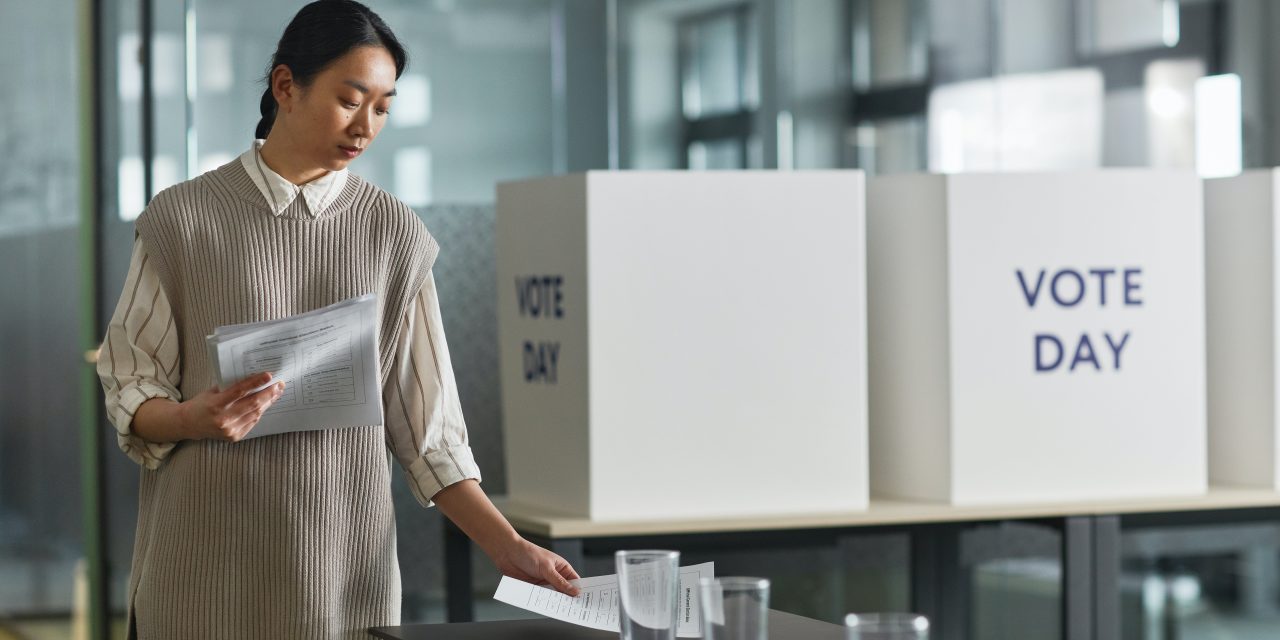The latest elections in Thailand saw the upheaval of nearly a decade of military-backed rule, with the elections being a defacto referendum of broader military dominance in politics, according to a Thai political scientist.
“The Thai electorate was loud and clear in rejecting military-authoritarianism,” Thitinan Pongsudhirak told DNA in an interview.
Dr. Pongsudhirak is a professor of politics and international relations at Bangkok’s Chulalongkorn University as well as a senior fellow at the Institute of Security & International Studies.
In 2014, a military coup ousted the democratically elected government in Thailand. A military regime then held power for five years, followed by another four years of an elected term under Prayut Chan-o-cha, who was the leader of the coup and then prime minister of Southeast Asia’s second largest economy.
More recently, Sunday’s elections saw social democratic & progressive political party Move Forward as well as Pheu Thai, an older and more centrist political party, take home a resounding win against military-backed United Thai Nation Party.
“The massive election results were a rejection of Prayut and damning indictment of his nine years at the helm,” Pongsudhirak said.
With opposition parties taking home the win, Pongsudhirak said that there was one more “spectacular twist” to the results.
“Capitalizing on its red-hot momentum during the final stretch, Move Forward edged out Pheu Thai, garnering 152 to 141 seats, in a shock victory,” he said.
Move Forward’s upset was driven by its focus on a grassroots mobilisation of voters and a reformist agenda.
“Without a war chest of funds to entice and induce voters, Move Forward had to be organic and hands-on. Whereas old-style Thai parties paid canvassers who mobilize voters based on patronage networks and money machines, Move Forward’s young leaders and foot-soldiers went all around the country to spread their message of reform. The party’s young supporters became its canvassers to connect with and convince older generations in upcountry and urban areas across the country,” Pongsudhirak said.
Meanwhile, Pheu Thai’s focus on populism and addressing the rich-poor and urban-rural divide let it down as the political needs of the population have seemingly shifted.
Thailand has gone through a paradigm shift in this election, Pongsudhirak said.
“The new battlefront is about institutional and structural reforms of the military, monarchy, and judiciary, all the way to the economy, governance and the constitution,” he said, “Pheu Thai got caught in its own trap. Having succeeded time and again with populist campaigns, Pheu Thai stuck with its tried and tested winning formula but it surprisingly misfired.”
Pheu Thai has steered the helm of Thailand before. The party has been the darling of billionaire businessman Thaksin Shinawatra, who was the prime minister of Thailand from 2001 to 2006, under the Thai Rak Thai party. However, after a coup which saw Thai Rak Thai dissolved in 2007, the Shinawatra kept his hold on Thailand’s politics with the Shinawatra-allied People Power Party winning the democratic elections post-coup.
Between 2008 and 2011, Thailand’s political turmoil continued until Pheu Thai, which is also a Shinawatra ally, was democratically elected. This saw Thaksin’s younger sister, Yingluck Shinawatra, become prime minister. In 2014, another military coup was staged, ushering in nearly a decade of military authoritarianism.
Fast forward to today, Move Forward has snapped the status quo and a new political era is forming.
Move Forward’s triumph is likely to see some backlash though, according to Pongsudhirak.
“In most other countries, the opposition’s thumping triumph at the poll would usher in a new government and replacement of the incumbents. But it is not so straightforward in Thailand,” he said.
“Move Forward’s agenda is an affront and a frontal challenge to the established centres of power. It is likely a matter of when and how – not whether – they will strike back.”
It is worth noting that once the election results were clear last Sunday, outgoing Prime Minister Prayut Chan-o-cha said that he respected democracy and his party, UTN, would respect the democratic transition of power. He added that he hoped for peace and development in Thailand.
Pheu Thai leader Paetongtarn Shinawatra congratulated Move Forward Sunday night and reiterated that her party was ready to work together.
On Move Forward policies, Pita Limjaroenrat, Move Forward’s leader, has said on numerous occasions that his party plans to “demilitarise, demonopolize and decentralise” Thailand.
Despite Limjaroenrat’s policies creating an uphill battle for him and his party, the 42-year old Harvard alumni is confident that he will take helm.
“My coalition is taking shape. And we have a very clear roadmap from today and until the day I become prime minister,” Limjaroenrat said on Thursday at a press conference.
Over the next 60 days, the Election Commission will tackle the task of certifying the results of the elections. This will then be followed by another month before the prime minister and their cabinet will take the reins.
“The post-election lull until mid-August when a new government emerges will be dominated by horse-trading and manoeuvring among political parties in the formation of a coalition government,” Pongsudhirak said.
Move Forward’s Limjaroenrat said this week that he has the support of around 310 of the 500 lower house seats of parliament. This is no guarantee that he will be able to form a coalition government, however.
“The 250-member appointed senate from the military era stands in the way because a bicameral majority of 376 parliamentarians [out a total of 750] are needed for the premiership,” Pongsudhirak said.
This means that Move Forward’s Limjaroenrat needs to garner another 66 allied seats in parliament if he’s to take the role of prime minister.
“Without sufficient support from the upper chamber, Pita’s coalition formation may become futile, providing Pheu Thai as the second largest winning party a chance to form a governing alliance,” Pongsudhirak said.
“What the Move Forward leadership needs to do is to pile the pressure on the appointed senators to break ranks and vote for the people’s choice,” he added.
There are two main likely outcomes going ahead, Limjaroenrat said.
The first would see a Move Forward-Pheu Thai alliance leading the next coalition government. This outcome faces a handful of challenges, namely the monarchy, the military and the difference in views between Move Forward and Pheu Thai.
“Move Forward’s unwavering objective to reform the military and monarchy is not shared by Pheu Thai and is starkly opposed by conservative-royalist forces. It will be a daunting uphill battle for Move Forward to take power with its reform agenda because of the royalist-conservative establishment that is stacked against it,” Limjaroenrat said.
If Move Forward fails to collect enough support, Pheu Thai will likely lead a compromise coalition with palace approval, according to Limjaroenrat.
This would involve Thaksin Shinawatra returning from exile to Thailand and the incorporation into government of other smaller parties without recently-ousted United Thai Nation Party as well as Move Forward, Limjaroenrat said.
Whichever outcome comes to fruition, it is clear that these elections have been a success story for democratic processes in Thailand and the broader Southeast Asian region.
As the UTN honourably intends to hand over power peacefully, it will be up to Move Forward and Pheu Thai to work together to bring about the Thailand which the people want.







